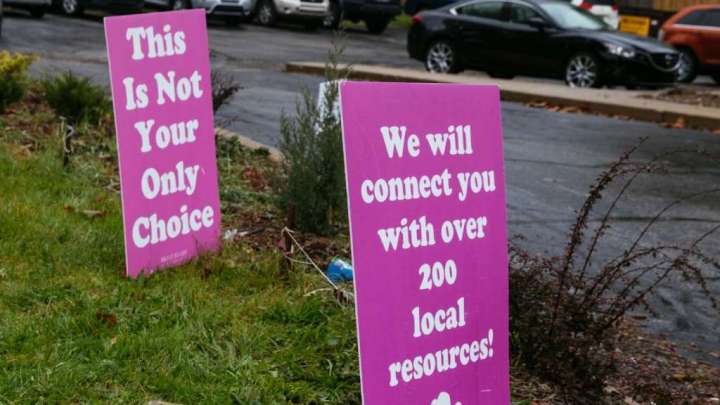O. Carter Snead is director of the de Nicola Center for Ethics and Culture and a professor of law at the University of Notre Dame and author of “What It Means to be Human: The Case for the Body in Public Bioethics.” Mary Ann Glendon is the Learned Hand professor of law, emerita, at Harvard University and a former U.S. ambassador to the Holy See.
The pro-life movement’s work is just beginning

The Supreme Court’s decision to return abortion regulation to our legislative branches is welcome and long overdue. For the culture of life movement, it is also just the beginning. After decades of arguing that our society must do a better job of caring for women, children and families, we now have the opportunity and obligation to prove this advocacy is more than just talk.
Abortion is a gruesome symptom of our collective failure to take care of one another. This means that, alongside our efforts to protect the unborn, we must act decisively to address the wide range of issues — from poverty to lack of support from fathers — that lead women to choose abortion in the first place.
This will require action in both the public and private spheres. Of course, pro-life nonprofits have been caring for women, babies and families since before Roe v. Wade was decided. But Dobbs v. Jackson Women’s Health Organization has given new leverage to pro-life voters whom the Republican Party can no longer take for granted. These voters should use their newfound clout to demand public commitments to supporting pregnant women and their children. Republicans who fail to meet these commitments should be disciplined at the ballot box — especially since, with the balance of the Supreme Court no longer a deciding issue, pro-life voters may now be attracted to moderate Democratic politicians who are serious about expanding the social safety net and do not seek to promote abortion.
One upside of Dobbs is that it makes possible broad coalitions of people of goodwill who, despite their disagreement on the fundamental question of abortion, agree that we must all work to provide for the needs of mothers, children and families in crisis. But building these coalitions will require conservatives and liberals alike to let go of any preconceived political dogmas regarding the role and size of government and focus on what works. The right answer might very well require new government programs and increased spending, greater support for and delegation to nonprofit care providers, or some combination of these approaches.
There are promising signs and models to build on, including recent efforts in conservative states to extend direct services to those in need. For example, in September, Texas increased its Medicaid coverage period for new mothers from 60 days after birth to six months. Idaho and Oklahoma have recently moved to offer state-level child tax credits, joining a growing roster of states working to support families in need.
At the federal level, Republican Sens. Marco Rubio of Florida and Mike Lee of Utah have just announced the Providing for Life Act. This legislation would help women through a variety of measures — including paid parental leave, increased child tax credits, enhanced federal nutrition programs, anti-discrimination protections for pregnant college students, expanded child-support enforcement and support for adoption.
These last two provisions, aimed at addressing the burdens of unwanted parenthood, deserve special attention. Roe and its progeny provided a permissive structure for any male who wished to abandon his children and their mother: “Her body, her choice, her problem.” It is long past time to increase penalties and enforcement for those men who walk away from their responsibilities.
Moreover, there are an estimated 2 million American couples waiting to adopt children and only 18,000 babies born in the United States voluntarily placed for adoption per year. There is also a strong desire to welcome babies into adoptive families from foster care, should efforts at reunification with biological parents prove impossible. In a post-Roe world, we must find ways to make it easier for women who cannot or do not wish to parent to make the courageous choice to place their sons and daughters with loving adoptive families.
We can expand on public-private partnerships such as the Alternatives to Abortion programs across many states, which allocate funding to nonprofit service providers that, in turn, supply direct services to women and families. In 2021, Texas’s program helped more than 126,000 people secure counseling, parenting support, financial assistance, health care, food benefits and housing; the state allocated $100 million to this program last year. We should also support promising efforts in the nonprofit space, such as Her Plan, which aggregates information and facilitates access to a variety of services for women in crisis, and our new “Women and Children First” research and service initiative at the de Nicola Center for Ethics and Culture at the University of Notre Dame.
But, as always, the greatest challenge is to transform the culture. This can never be done at a distance. It requires those who would build a culture of life to extend the hand of friendship not only to families in crisis but also to those who disagree with us and are distressed by the court’s decision. It is only when we show through our actions the goods of unconditional love and radical hospitality at the core of the culture of life movement that we will change hearts and minds. Time to get to work.






